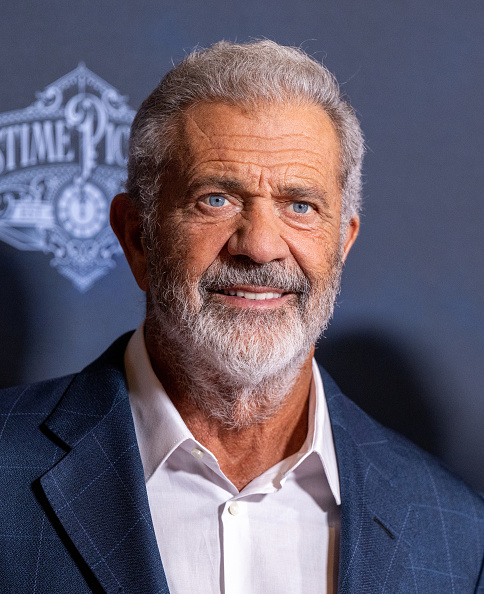Envying Mel Gibson

Evangelical Christians are so excited about "The Passion of the Christ" they're almost selling popcorn in the vestibule.
They're definitely screening church-tailored clips of the movie in the sanctuary. My church has already shown two promotional trailers. Like many other church groups, our youth and their parents plan to attend the movie and invite non-Christian friends.
With the current media uproar about the movie, millions of curious folks will go see it whether they're invited or not.
I think that's great. It's about time there was some national buzz about something actually worth seeing. And this movie's explicit depiction of Jesus' final hours should add to its power.
Back in high school, my Christian friends helped lead me to faith in Jesus by taking me to see "The Exorcist." It wasn't their only evangelistic strategy, but it helped seal the deal. That film, the scariest ever made in my opinion, shocked me into confronting the reality of supernatural good and evil in the world -- which in turn helped nudge me into the arms of a holy and merciful God.
By faithfully illustrating the gospel, The "JESUS" film has done the same for tens of millions of seekers around the world, becoming one of the most effective evangelistic tools in church history.
Admit it, though, preachers: As you quietly toil over next Sunday's sermon, you must be envying Mel Gibson, at least a little bit. I sure do.
The guy's a major movie star, a big-time box-office draw. He's got the looks, but he can act, too. Sure, he hit it big with the mindless "Lethal Weapon" series, but he also made a good film version of "Hamlet" -- the ultimate dramatic challenge. He won an Oscar for directing himself in "Braveheart," the rousing historical epic about Scottish rebel William Wallace. And now, with "The Passion of the Christ," he could become one of the most influential gospel evangelists of our time -- almost overnight.
Some guys get all the breaks.
Breaks actually have little to do with it. Give Gibson the credit he deserves: He's talented, intelligent and passionate about his work. He earned the considerable clout he wields in Hollywood.
And now he's using it -- some would say risking it -- to tell the world about a Christ who loves the world so much He endured excruciating suffering for our sins.
We need more Mel Gibsons. As Andy Crouch notes in February's issue of Christianity Today, conservative believers used to ask, "Should we watch movies?" Later they asked, "What kind of movies should we watch?" Now, more and more are asking, "What kind of movies should we make?"
That last question is exactly the right one if we want to get the attention of our media-driven culture -- particularly of its younger inhabitants. Spiritual revolution depends at least in part on seizing the means of communication.
The Next Step
Getting attention is critical, but it's only a first step. That's where you faithful pastors re-enter the picture. People who sincerely choose to follow Christ as Lord after seeing Gibson's movie -- and evangelical leaders predict they will be legion -- eventually will visit your churches. The next step is up to you.
The Barna Research Group's latest study, about the new generation of pastors entering American pulpits, has mixed news on that front.
The number of Protestant pastors from the Baby Bust generation (ages 20-38) has doubled in only two years. They now account for more than 45,000 of the 324,000 senior pastors of American Protestant churches, according to the study.
"In a world where image is king and attention spans are declining, the research shows that young pastors are more likely to experiment with new approaches to teaching and preaching," says the Barna group. They more frequently use drama, movies, videos, DVDs, storytelling, art, music, interactive dialogue, lighting and creative arrangements of worship spaces to deliver messages and elicit response.
"These multimedia and experience-laden forms of communication appeal to younger, often postmodern people, who tend to reject external sources of authority in favor of relying on their own experiences and feelings to interpret reality."
Younger pastors also are more likely than their middle-aged Boomer elders to describe their congregations as seeker-driven and theologically conservative, the study finds. They are "more attuned than are older pastors to the cultural battle for the hearts and minds of young people," more likely to prioritize family and youth ministry, and more focused on spiritual growth, discipleship and Bible study.
Missing Priorities
All that sounds great, but there's a major caveat: "Young pastors are actually less likely than average to say their church prioritizes community, missions, service, social action or prayer," says David Kinnaman, Barna Research vice president and director of the study.
"Surprisingly, the 'missing' priorities of young pastors are some of the exact elements to which members of the young generations (Busters and the even younger Mosaics) gravitate .... (W)ithout increased emphasis on these areas, many churches -- even those led by young pastors -- will find it very difficult to appeal to young people who deeply desire relational authenticity, service to the poor and disadvantaged, globally minded activity, and spiritual depth through prayer."
All the cool media in the world won't make up for that shortcoming. True worship always leads to loving action and sacrificial service in a hurting world.
That's part of what the passion of the Christ is about.
Visit www.imb.org
More about Mel Gibson

Related Content:
- Mel Gibson Announces Lionsgate Partnership for Follow-Up to 'The Passion of the Christ'
- Mel Gibson Says Losing Malibu Mansion in Fire Allows Him to Do 'What I'm Being Called to Do'
- Mel Gibson’s ‘The Resurrection of the Christ’ Finally Has a Production Date
- Mel Gibson Confirms Sequel to ‘The Passion of the Christ,’ Says 'I Regard the Gospels as History'
- ‘Passion of the Christ’ Sequel to Be Split in 2 Parts: First Movie Targeted for 2025
Photo Credit: ©Getty Images/Amanda Edwards/Contributor
Originally published February 24, 2004.







